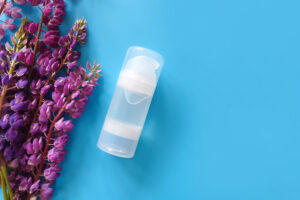Vaginal pH Balance
 Most couples are familiar with the use of lubricants when being intimate with each other, and many women may even use them on their own. Lubricants are typically essential in every sexually active household, and with so many personal gels and moisturizers out there to choose from, which ones are truly the healthiest for our vaginas and their pH balance?
Most couples are familiar with the use of lubricants when being intimate with each other, and many women may even use them on their own. Lubricants are typically essential in every sexually active household, and with so many personal gels and moisturizers out there to choose from, which ones are truly the healthiest for our vaginas and their pH balance?
It’s a common myth that water and silicone-based lubricants can disrupt vaginal pH balance and/or cause infections. The amount of acidity or alkalinity in a water-based environment, known as pH, is best between 3.5 and 4.5. Comparatively, the pH of semen is 7.0 to 8.5, and rectal pH is around 7.0. Our personal and partner’s hygiene is pivotal to helping keep our pH balance in check, especially when there are different pH balances involved.
Choosing a Lubricant
There are so many new lubricants on the market claiming to be natural and organic, it can sometimes feel overwhelming. You may be wondering, “are they really better for me?” If you have sensitive skin in your vaginal area or are prone to bacterial vaginosis (also known as Candida bacteria), natural and organic may be the way to go. Here are some of the best available to keep everything feeling fresh down there:
- Aloe Life Personal Gel Moisturizer Unscented
- Nuvia Organics Evening Primrose Oil
- Sustain Organic Lubricant
- H2OH! Water Based Lubricant
- Good Clean Love Almost Naked Organic Personal Lubricant
These are just a few of the best rated, healthy, and balancing personal moisturizers on the market. There are even brands of olive oil that are specifically for lubrication! However, since this is a very personal matter, you should always choose carefully based on how your body is experiencing different elements. Some women are extremely sensitive to oil-based lubricants, so if that sounds like you, it is advisable to go for a water-based one. Additionally, some may be sensitive to additional odors. Whether that is you or your partner, you may want to consider avoiding scented lubricants—even if the scent is organic.
Attention Points
- If at any point you experience irritation with a product, discontinuing usage and safely cleaning the area with plenty of water, patting dry from front to back with clean toilet paper, and contacting your primary care physician should symptoms occur is pivotal.
- It is also important to remember that oil-based lubricants, even plain olive oil that can be used for lubrication, heighten the risk of condom breakage.
- Warming lubricants should also be avoided, as they disrupt the vaginal pH. You can naturally warm a lubricant at room temperature before use.
- Avoid using internal products that don’t fall within our normal 3.5 to 4.5 natural pH range and douche as infrequently as possible, as it rinses out the healthy bacteria in our vaginas. Also avoid scented soaps and talcum powder. Opt for showers instead of baths.
